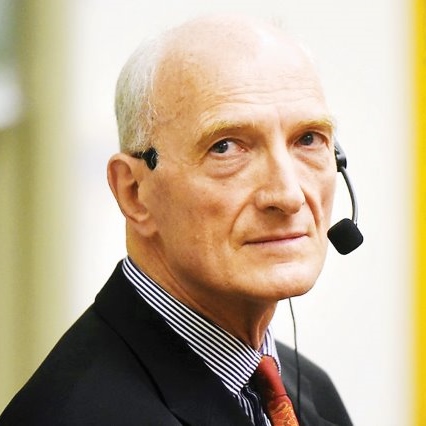
News

Want to reduce crime? Start by abolishing minimum sentences.
MOIRA SCHNEIDER
Law alumnus and benefactor Ben and Shirley Rabinowitz established the Annual Rabinowitz Lecture in 2009 to encourage the participation of leading local and international lawyers in the intellectual life of the faculty.
Addressing the crisis of criminal justice in the country, Cameron said there were no quick solutions. While he didn’t see long sentences as the answer, he said minimum sentences were “no response at all” and an “extravagant mistake” in trying to curb crime.
“They are useless and counterproductive. Prisons are not places of rehabilitation.” The answer lies instead in fixing “our dismaying lack of institutional competence” and a focus on institutional regeneration – improvement in police intelligence and response, and prosecutions.
“There is absolutely no point in calls to bring back the death penalty, and I honour those politicians who have had the courage to say it,” Cameron said.
During the first decade of democracy, crime increased 30%, pulling the rug from under the belief that apartheid was the cause of crime. It generated calls on the new democratic leadership for a tougher stance, resulting in the adoption of minimum sentences, harsher punishment, limiting access to bail, and the United States model of supermax prisons.
“Even the un-outspoken apartheid judiciary spoke out against minimum sentences,” Cameron recalled, pointing out that they lack consistency and coherence. The minimum sentencing regime was initially introduced for a year, but 20 years later, it’s still with us. “Its impact is evidenced in the great number of people detained, and the period they are detained for.
“In spite of that, we have people calling for harsher sentences. I’m not saying there shouldn’t be harsh sentences, but minimum sentences are entirely and utterly misdirected.”
The prison population is up 50% since 1994, and the vast majority are those serving minimum sentences. In addition, 18 000 are serving life sentences – one out of every five prisoners. In 1995, there were only 400.
“In most cases, those life sentences are pointless,” Cameron said. The “tough on crime” approach has led to a larger prison population with overcrowding and a negative impact on prisoners.
Referring to the high rate of recidivism, he said, “We have to take stock of what we’re doing. Because of overcrowding, prisons are creating crime, not preventing it. Minimum sentences simply don’t work, and have seriously clogged up our prisons.”
Institutional disintegration has occurred as a result of criminal syndicates taking over the government and institutions at the highest level. “That’s what happened in the nine years preceding the Ramaphosa administration,” Cameron said.
There was a “catastrophic loss of focus and capacity” in the police and National Prosecuting Authority at this time, with the result that public trust in the police and the administration of justice had been lost.
“Crime has become rampant because of corrupt police officials and crime intelligence,” he said, pointing out, “I have no doubt that the absence of crime intelligence has had an impact on the surge of xenophobic violence.”
As for solutions, none offered a quick fix. “The real and only solution to the crime rate is to recognise that the sole inhibiting institutional response to criminal conduct is the certainty of detection, the certainty of follow-up, the certainty of arraignment, the certainty of prosecution, and the certainty of punishment. The length of sentence plays no role whatsoever,” Cameron said.
Improving police capacity was a “long, slow process” not necessarily about numbers but about improving “competence, responsiveness, and skill.”
Cameron believes minimum sentences should be abolished. “We can scrap them right now for all lower-level, non-violent crime, and all drug offences, for a start.”
Next, he proposes releasing elderly offenders, each case to be assessed individually. “Men commit violent crime 99% of the time, but once they reach 50, the risk of that same man becoming recidivist diminishes.”
Third, he would like a more just bail system. “The point is not to refuse bail, but to make it more efficient.” This is critical to reducing overcrowding – a third of the prison population consists of remand detainees.
Changing bail legislation could decrease the prison population markedly. By not incarcerating those who can’t afford cash bail, we could reduce the prison population by 5% immediately. “Bail should be based on the danger to society, not on the ability to afford it,” Cameron said. The economics of incarceration is an added factor. It costs R10 000 a month to keep a single prisoner in jail.
Fourth, a sentencing council should be established to lay down sentencing principles, and allow for flexibility.
“I’m not blind to the harsh reality of crime and its horrors,” Cameron assured the audience. “The fact is that our current system is unproductive. Futile responses don’t reduce crime.”




